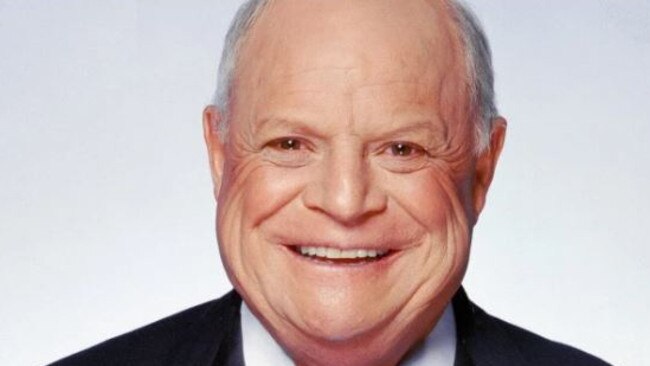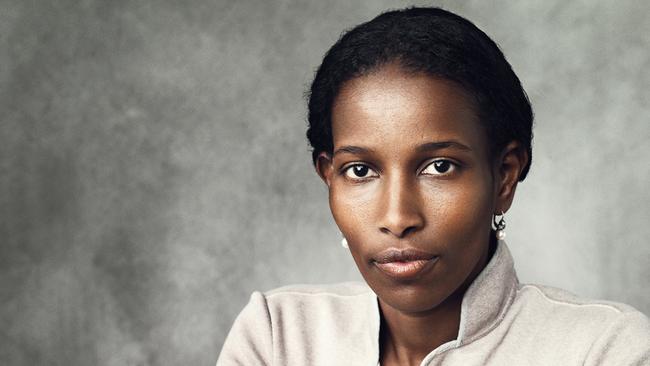Is it time for free speech to be enshrined in our constitution?
WE’RE not a racist nation. But even if we were, restrictions on what we can and can’t say wouldn’t fix anything, writes James Morrow.
Rendezview
Don't miss out on the headlines from Rendezview. Followed categories will be added to My News.
DON Rickles, the great American stand-up artist and godfather of insult comedy who finally left the stage at age 90 yesterday once said that despite his successes, he always had one terror.
“Every night when I go out on stage, there’s a nagging fear at the back of my mind,” he said, “I’m always afraid that somewhere out there, there is one person in the audience I’m not going to offend.”
Not surprisingly, Rickles didn’t do many Australian tours. One night’s set of his sequal opportunity offending (sample: “Italians are fantastic people, really. They can work you over in an alley while singing an opera”) would have produced so much work for the Human Rights Commission they’d have to pulp every old growth forest from Hobart to Launceston just to print out all the complaints.
Unlike the US, we are not a country that does free speech well.
Lately we have seen the startling cases of corporate executives hounded into quitting their after-hours affiliations with Christian groups lest they contradict their employers’ official stance on gay marriage.
This past week Ayaan Hirsi Ali, an ex-Muslim and human rights campaigner, had to call off her trip to Australia not just because of security concerns but because of the threats of thousands of protesters who tried to get auditoriums to cancel their contracts and made it clear they would shut her down by any means necessary.
And in a line that echoed the calls of Mao’s Red Brigades and East Germany’s Stasi for kids to inform on their parents, HRC president Gillian Triggs recently told a crowd in Hobart that with respect to free speech, “sadly, you can say what you like around the kitchen table at home.”
The common thread that links Triggs, Hirsi Ali’s opponents, and the activists bullying execs for their personal positions is a deep and abiding terror that someone, somewhere might hear an unapproved opinion. Because, at heart, they don’t think you can handle it or be trusted to make up your own mind, responsibly.

And in trying to make the entire world’s conversations as anodyne and agreeable as the lunchtime chatter at the ABC’s staff canteen, these censors are the equivalent of the safety first brigade who do everything to constrict and suck the joy out of life.
They are the intellectual equivalent of those who ban eating a bowl of chips while your mate has a durry in the smoking area of the pub lest someone come down with a case of second-hand salt.
In the process they have been allowed, essentially, a veto power over what can and cannot be said in Australia.
How different things are in the US, where Americans enjoy a constitutionally protected right to free speech. Having myself grown up in New York in a family of journalists where the words “Congress shall make no law … abridging the freedom of speech, or of the press”, I wonder if there is a case to be made for bringing something similar in here.
As a way to finally end the endless culture wars and tedious parsing of the words of Section 18C of the Racial Discrimination Act, there might be no better circuit breaker than putting similar words to the Australian people, perhaps in a straightforward yes/no referendum: “Parliament shall make no law abridging freedom of speech or of the press”.
The “anti” lobby, which would surely include the ABC, the Fairfax press, and everyone else associated with the business of confecting and correcting offense, would mount a case that without the soft repression of the state, Australia would turn into a hellhole as racist as Germany in 1938 and homophobic as Saudi Arabia since, well, forever.
Those mounting the “pro” case might note that in fact there’s little connection between free speech and bigotry.

In the most recent World Value Survey on the subject, both Australia and the United States ranked as among the most racially tolerant nations on the planet. (Jordan and India, interestingly, topped the list of least tolerant countries.)
And the idea that Australia is a roiling cauldron of racism that is only kept from bubbling over by the threat of lawsuits or being “called out” by activists on Twitter is ridiculous, as the widespread outrage whenever some mouth breather’s freelance racial abuse on a train or bus is captured on video and spread on social media.
They could also point out that history shows that when there’s an apparatus — official or not — in place to shut down inconvenient viewpoints, it only takes a small shift in the wind for it to be directed at those who might previously been most in favour of it.
Either way, the time has come to settle the free speech wars once and for all. Perhaps the best question to ask those who would oppose such a line being the law of the land what they are so afraid of.
And if such a First Amendment style referendum did get up, well, we’d have the extra benefit of knowing that somewhere Don Rickles was looking down and smiling, probably while writing a joke about Australia and convicts and sheep.
James Morrow is Opinion Editor of the Daily Telegraph



